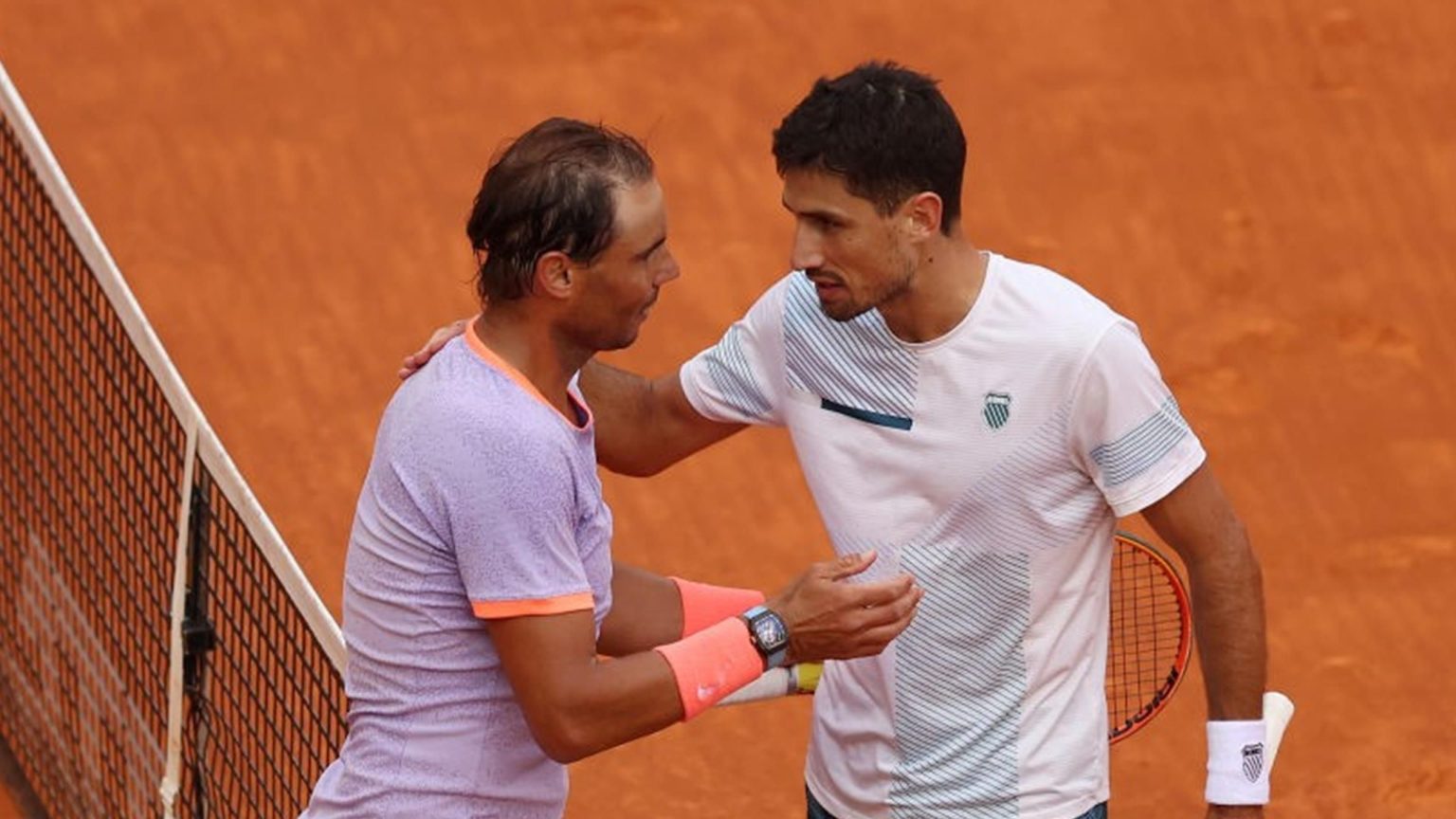The act of players swapping shirts at the end of matches is more common in football than in tennis. Recently, after his match against Rafael Nadal in Madrid, Argentine player Pedro Cachin asked Nadal for a souvenir, saying, “You made my dream come true, thank you. It’s not how the protocol is, but can I get your shirt, towel or something?” Nadal, who was likely playing in Madrid for the last time before retiring, obliged and gave Cachin a shirt from his bag. The moment garnered attention as it is not a common occurrence in tennis, unlike in other sports, such as basketball and soccer.
Women’s world No. 1 Iga Swiatek was asked after her quarter-final win if she had ever experienced a similar request for a souvenir. Former Wimbledon runner-up Nick Kyrgios defended Cachin’s request, stating that players in other sports, such as NBA and soccer, frequently exchange memorabilia. Kyrgios emphasized that such gestures are a way to preserve the memory of a significant experience that very few individuals get to have. In response to a post by tennis commentator David Law, Kyrgios supported Cachin’s action, highlighting the unique opportunity to collect a memento from an accomplished player like Nadal.
When asked about his thoughts on Cachin’s request for a souvenir, Czech player Lehecka expressed his belief that players should focus on winning matches rather than seeking memorabilia from their opponents. Lehecka emphasized his approach to tennis as being focused on competition and winning, rather than on collecting items or souvenirs. He stated that while he respected Cachin’s decision, personally, he would not make such a request during a match. Lehecka suggested that he would be more comfortable asking for a photo or exchanging items after a tournament, rather than during a match.
Lehecka shared his perspective on sportsmanship and respect for opponents, stating that he did not want to sound disrespectful by making such a request during a match. He emphasized that while individual players may have different opinions on exchanging memorabilia, his personal approach was to focus on competition and winning on the court. Lehecka acknowledged that Cachin’s decision to ask Nadal for a souvenir was acceptable and that he had no issues with it. However, he highlighted his own preference for maintaining a competitive mindset during matches.
The incident involving Cachin’s request for Nadal’s shirt sparked a debate on the appropriateness of such requests in tennis. While some players, like Kyrgios, supported the idea of exchanging memorabilia as a way to commemorate significant experiences, others, like Lehecka, emphasized the importance of maintaining a competitive mindset during matches. The differing opinions reflect the diverse perspectives within the tennis community on sportsmanship, respect, and the significance of gestures such as swapping shirts at the end of matches. Ultimately, each player approaches these situations differently based on their individual values and beliefs.
In conclusion, the incident involving Pedro Cachin’s request for Rafael Nadal’s shirt at the end of their match in Madrid sparked a discussion within the tennis community about the appropriateness of exchanging memorabilia in the sport. While some players supported the idea as a way to commemorate significant experiences and show respect for opponents, others emphasized the importance of maintaining a competitive mindset during matches. The differing opinions highlight the diverse perspectives within the tennis community on sportsmanship and the significance of gestures such as swapping shirts at the end of matches. Ultimately, each player approaches these situations based on their individual values and beliefs, showcasing the complexity of sportsmanship in professional tennis.


